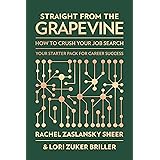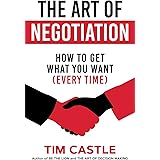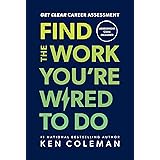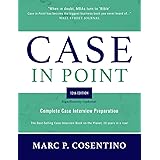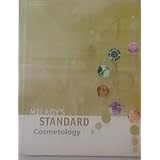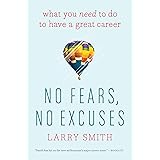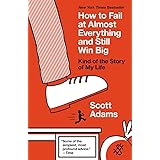Have you ever looked back at a chunk of your life and felt a pang of regret, a sense of “wasted time”? Many of us have. It’s a feeling all too familiar to the speaker in the video above, who candidly shares his own journey of realizing he spent his early twenties and beyond in unspecialized roles, leaving him vulnerable and lacking a clear career path. His story, moving from a restaurant gig to a decade in medical transcription, is a powerful reminder that drifting through work can leave us feeling “stuck in life” – a sentiment countless individuals can relate to. The good news? He also shares a transformative framework that helped him pivot into a fulfilling and in-demand career: the intersection of Passion, Proficiency, and Profitability.
This isn’t just about finding a job; it’s about discovering your vocational calling, a career that truly resonates with you, leverages your strengths, and provides financial stability. Let’s delve deeper into this crucial career advice and how you can apply it to navigate your own professional journey, particularly in today’s dynamic job market.
Understanding the Traps of Career Stagnation
The speaker’s experience at LabCorp, punching numbers for eight hours a day, then a decade in medical transcription, highlights a common but dangerous career trap. These were roles where “really anyone can do it.” While such jobs can provide immediate income, they often lead to a significant professional vulnerability. Imagine if you dedicated years to a task that required minimal specialized training. What happens if that department is eliminated, or automation takes over? As the speaker vividly illustrates, you could be left “void of any skill set to move forward with.”
This isn’t just a hypothetical scenario. In our rapidly evolving economy, jobs that lack a unique skill component are increasingly susceptible to outsourcing or technological replacement. The rise of AI, for instance, is already transforming many data entry and transcription roles. Without a specialized skill, your career growth stagnates, and your ability to adapt to new opportunities diminishes significantly. It’s a stark reminder that proactive skill development is not just beneficial, but essential for long-term career security and satisfaction.
The Power of a Guiding Framework: Passion, Proficiency, and Profitability
The turning point for the video’s speaker, and what he now recommends to anyone feeling lost, is a profound diagram centered on three critical components. When all three align, you discover your vocational sweet spot. If one is missing, you’ll inevitably face frustration, financial struggles, or career dead ends. Let’s break down each element:
1. Passion: What Ignites Your Inner Spark?
Passion is more than just liking something; it’s what genuinely excites you, what makes you lose track of time, what you’d happily do even if you weren’t paid (at least initially). It could be anything from building intricate models to caring for animals, debating complex ideas, or, as in the speaker’s case, fixing computers and delving into technology.
However, passion alone is not a viable career strategy. Imagine if you were incredibly passionate about collecting vintage comic books. You might know every artist, every storyline, and the rarity of each issue. That enthusiasm fuels you, but unless you can monetize it effectively, it remains a hobby. While fulfilling, hobbies typically won’t pay the bills or build a sustainable career. As the speaker wisely notes, if you lack passion for your work, even if it pays well and you’re good at it, you’ll eventually “hate what you do.” That daily dread can erode your quality of life, making even a lucrative job feel like a prison.
2. Proficiency: What Are Your Natural Strengths and Acquired Skills?
Proficiency refers to what you’re genuinely good at, those tasks or areas where you excel, often effortlessly. This could be a natural talent, or a skill meticulously honed through practice and learning. For the speaker, it was his knack for “all things computers,” a talent his wife repeatedly pointed out.
Being proficient is valuable because people naturally seek out those who are good at what they do. However, like passion, proficiency in isolation isn’t enough. Think of the auto mechanic in the video – highly skilled, but constantly complaining. If you’re excellent at something you despise, every request for your expertise feels like a burden, draining your energy and fostering negativity. Conversely, if you’re passionate about something but lack the proficiency to execute it well, your efforts will likely fall flat, leading to frustration and failure. Developing your skills, whether through formal education, certifications, or self-study, is paramount to translating passion into effective output.
3. Profitability: Is There a Market and Fair Compensation?
This is the pragmatic anchor of the framework. Profitability asks: Is there a demand for this skill or service? Can you realistically make a living doing it? Does the industry offer fair compensation for your time and expertise? The speaker stresses that if your passion and proficiency don’t intersect with a profitable market, you’re essentially pursuing a hobby, not a career.
Consider the example of someone passionate about writing poetry and highly proficient in crafting beautiful verse. While artistic merit is high, the market for professional poets is extremely niche and often not highly lucrative. Without profitability, even the most passionate and skilled individuals can find themselves struggling financially. This aspect requires honest market research: investigate salary ranges, industry demand, and growth forecasts. For instance, nursing, as highlighted in the video, is a field often characterized by passion for helping people, high proficiency among trained professionals, and consistent demand with good pay. That’s a triple threat.
Applying the Framework: Your Actionable Steps
So, how do you discover your own vocational calling using this powerful framework? It requires introspection, external input, and practical research.
-
Identify Your Proficiencies: What Are You Good At?
Start by making a comprehensive list. Don’t limit yourself to professional skills. Include personal talents, things you’re often asked to help with, or activities where you naturally shine. Perhaps you’re an exceptional organizer, a natural leader, a problem-solver, or a creative thinker. Sometimes, our strengths are so innate we don’t even recognize them. The speaker advises: “Ask people.” Often, what’s obvious to everyone else is invisible to us. Reach out to friends, family, and colleagues. Ask them, “What do you think I’m really good at?” Their perspectives can offer invaluable insights.
-
Uncover Your Passions: What Do You Love Doing?
Next, list what genuinely excites you. What topics spark your curiosity? What activities make you feel alive and engaged? It might be a long-forgotten hobby from childhood, a subject you constantly read about, or something you’ve always wanted to try. Don’t censor yourself; include everything from cooking to coding, gardening to strategic planning. Remember, passion can be reignited, or it can be a latent interest waiting to be explored. This isn’t about what you should love, but what truly resonates with your inner self.
-
Assess Profitability: Does a Market Exist for This Combination?
With your lists of proficiencies and passions in hand, it’s time for the reality check. Cross-reference these with the demands of the current and future job market. Are there career paths that genuinely combine what you’re good at and what you love, while also offering sustainable income? For the speaker, it was the realization that he loved computers, was good at them, and software development was a highly profitable career. This aligned perfectly, leading him to his vocational calling.
This step might involve researching industries, exploring specific job roles, looking at salary guides, and understanding long-term demand trends. For instance, imagine if you’re passionate about environmental issues and proficient in data analysis. The profitable intersection could be a career in environmental data science or sustainability consulting, both growing fields.
Avoiding Costly Career Mistakes: The College Debt Trap
The diagram’s utility extends beyond just finding a job; it’s a powerful tool for making major life decisions, such as pursuing higher education. The speaker warns against the “college debt trap,” citing examples like theater, graphic design, fashion design, art, photography, or tourism degrees. While these fields might align with someone’s passion and potentially their proficiency, the critical missing piece is often profitability in terms of a broad, accessible job market and reasonable return on investment for the significant cost of education.
Imagine if a student deeply loves acting (passion) and has a natural talent for it (proficiency), and decides to get a theater degree. Without a clear and sizable market for professional actors that can support the debt incurred, this path often leads to financial struggle. This isn’t to say these fields lack value or opportunity for some, but it underscores the importance of a realistic market assessment before committing to substantial educational debt. Making informed decisions here can save “tons of money in college debt alone.”
The Boundless Opportunities of the Digital Age
The speaker also touches upon the incredible leverage offered by the World Wide Web “in 2024 and beyond.” This isn’t just hyperbole; it’s a testament to the digital revolution. From software development to content creation, digital marketing, cybersecurity, data science, and countless entrepreneurial ventures, the internet has democratized access to information, tools, and global markets. This creates “boundless opportunities” for those willing to learn and adapt.
Imagine if you combine a passion for teaching with a proficiency in a specific software, and recognize the growing demand for online courses. You could create and sell a highly profitable educational product globally. The key is to see these opportunities, rather than succumb to a fixed mindset that dismisses new possibilities. The modern landscape rewards continuous learning and the courage to pivot and leverage emerging technologies.
Where are you on this chart today? Are all three elements—passion for what you do, proficiency in your skills, and profitability in your chosen field—aligning in your career? Reflecting on these three interconnected areas can provide profound clarity and guide you toward a more fulfilling and secure professional future. Understanding your vocational calling is an ongoing journey, but with this framework, you have a compass to navigate it.
Your Unstuck Journey: Questions & Answers
What does it mean to feel ‘stuck’ in a career?
Feeling stuck means being in unspecialized jobs that don’t offer a clear path forward, leaving you vulnerable and without unique skills if the job market changes.
What is the main framework for finding a fulfilling career discussed in the article?
The article introduces the ‘Passion, Proficiency, Profitability’ framework, which helps you find a career that aligns with what you love, what you’re good at, and what the market needs.
What do ‘Passion,’ ‘Proficiency,’ and ‘Profitability’ mean in this framework?
Passion is what genuinely excites you; Proficiency refers to what you’re good at; and Profitability asks if there is a market demand for your skills that offers fair compensation.
Why is it important for a career to combine Passion, Proficiency, and Profitability?
When all three align, you discover a fulfilling vocational calling; if one is missing, you may experience frustration, financial struggles, or a lack of career growth.


